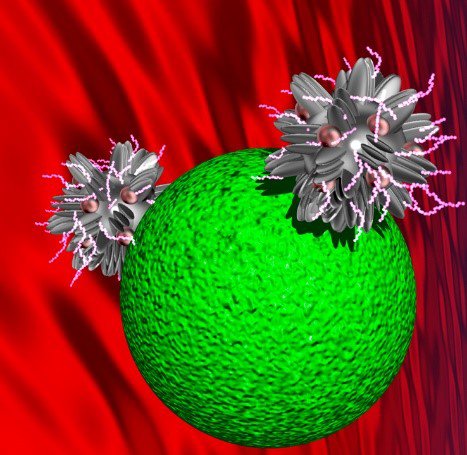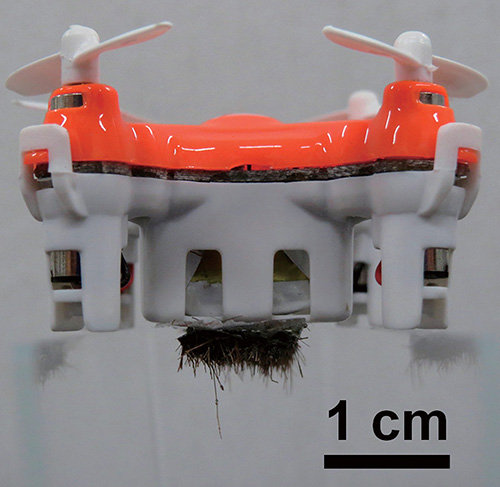
Creation of Game-Changing-Technology by Functional Materials and Bioengineering
Laboratory on Advanced Bioengineering
Professor:MIYAKO Eijiro
E-mail:
[Research areas]
Bioengineering; Materials Chemistry; Nanotechnology; Nanomedicine
[Keywords]
Nanorobot; Nanobio; Nanomaterials, Bio-functional materials; Biotechnology; Biomimetics
Skills and background we are looking for in prospective students
Special skills and background are not required at the beginning because you would be trained step-by-step after joining to the lab. We are looking for the students who really want to be a real scientist and an international first grade researcher and eager to learn something with flexible mind, cooperativeness, much curiosity, ambitious spirit to explore true natural science and new technology in various biological fields such as medical and agriculture with us all together.
What you can expect to learn in this laboratory
Our research is fully multidisciplinary works and a sort of polyhedron prepared by our thinking and learning. Thus, you can learn anything if you want, for instance, organic syntheses, biochemistry, genetic engineering, skills for cellular and animal experiments, nanomaterials, medical device, robot and so on. Let’s get started with us right now to carve up your own unique research by something you learned up to now!
Research outline

Figure 1. Schematic illustration of a representative nanorobot for future innovative nanobiosystems.

Figure 2. Image of a bio-inspired robotic bee for artificial pollination.
Research interests of MIYAKO laboratory are in the area of bioengineering, materials chemistry, nanotechnology and nanomedicine.
For example, using various physicochemical properties of nanomaterials, we challenge to develop an innovative nano-bio system that can monitor and control biological activities and health conditions at nanoscale level (Figure 1). For this objective, our work is also focused on the synthesis of high-quality "nanorobots", the engineering of their surface, and their assembly and consolidation into functional nanorobot to the aforesaid target biological applications, as well as to develop fundamental understanding of structure-property relationships.
We are also concentrating on creating nature-inspired materials and robotic engineering as game-changing technology in the field of food and agricultural industries (Figure 2). Our research is always based on the interdisciplinary nature with a lot of study fields such as chemistry, physics, biology, material science, and engineering etc..
Past Representative Research Themes
- Bioelectronic Implant Nanodevice
- Liquid Metal Nanotrans former
- Supramolecular Nanotrain
- Nanomodulator for Cellular Stimulation
- Photothermic Regulation of Gene Expression
- Light and Magnetic Field-Driven Nanotransporter
- Materially Engineered Artificial Pollinator (Robo bee)
They are just representatives. Our ultimate dream is to create the best science and technology in the world. Why not make an innovative technology and explore your own cool research field with us?
Key publications
- Yue Yu, Xi Yang, Sheethal Reghu, Sunil C. Kaul, Renu Wadhwa, Eijiro Miyako*, "Photothermogenetic inhibition of cancer stemness by near-infrared-light-activatable nanocomplexes" Nature Communications 11, 4117 (2020).
- Svetlana A. Chechetka, Yue Yu, Xu Zhen, Manojit Pramanik, Kanyi Pu, Eijiro Miyako*, “Light-driven liquid metal nanotransformers for biomedical theranostics” Nature Communications 8, 15432 (2017).
- Eijiro Miyako*, Kenji Kono, Eiji Yuba, Chie Hosokawa, Hidenori Nagai, Yoshihisa Hagihara “Carbon nanotube-liposome supramolecular nanotrains for intelligent molecular-transport systems” Nature Communications 3, 1226 (2012).
Equipment
Laser, fluorescent microscopy, UV-Vis-NIR spectrometer, fluorescent spectrometer etc.
Teaching policy
Here is English-based laboratory. We are willing to do my best as much as possible for your future scientific career and share with them the experimental analytical skills, the ability to think independently, express one’s self logically, the capability to learn outside the traditional classroom setting and so on through discussion, journal club, annual meeting and conference. Especially, we will commit to the students, who would like to pursue a PhD, to enable them to find a research career in industry and academia by providing a cutting-edge and international research atmosphere with a lot of our collaborators all the world. Besides, our core-time of the laboratory is from 9am to 17pm except for one-hour break. Herein, we expect you must efficiently, effectively and speedy carry out works. Reflash after 17pm and holidays. In other words, study hard and play hard. Miyako laboratory will also actively develop and promote people from a variety of backgrounds who differ in terms of experience, knowledge, sensibility, perspective, cultural background, and values, and in so doing will not discriminate based on ethnicity, nationality, gender, religion, age, social position, or disability.
[Website] URL:https://miyakoeijiro.wixsite.com/eijiro-miyako-lab